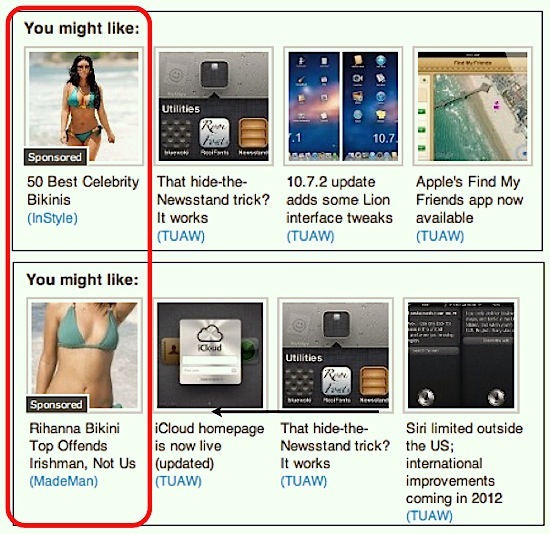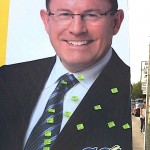The All Blacks held on in a tough, tense final against ‘old bogey’ France.
Well done to Richie McCaw, Graham Henry and the team.
– P
Update: front of the NY Times …
I was reminded of Lange’s ‘Dodgems of thought’ phrase this week when I observed a right wing blogger smear a political commentator who I respect Chris Trotter as a Labour ‘flunky’. Cameron Slater named Chris Trotter as [allegedly] part of a ‘scurrilous’, unethical Labour plot to spread [allegedly] unsavory rumours about former National Party cabinet minister, reborn as an ACT Epsom electorate MP John Banks.
Labour’s smear tactics in Epsom by Whaleoil on October 21, 2011
There is some pretty scurrilous stuff happening in Epsom, serious muck-raking and innuendo being shopped to the media, even Trevor Mallard is trying to spread it along with other flunkies like Martyn Bradbury and Chris Trotter.
It seems that Labour, bereft of any other ideas are hell bent on trying to undermine ACT as a strategy. Little do they know that ACT is quite capable of doing that all by themselves. However it is apparent that there is a concerted Labour strategy in play now to attack ACt [sic] at every opportunity. Mallard is blogging and Tweeting endlessly about it, their lap-blogs are likewise talking it up, their media proxies are busy talking about polls and all of it focussed on Epsom and ACT.
Wow! Setting aside the cringe-making Waaaaaaaah! factor and Cameron’s vicarious persecution complex (‘a concerted Labour strategy in play’, ‘media talking about polls’, ‘OMG Mallard is blogging & tweeting’ — Hello? You know there’s an election coming up?) and the hypocritical hand-wringing about ‘lap-blogs’ (pfft! Can you hear yourself, you poodle?) … the eyebrow-raising part of Cameron’s fevered rant was this:
He claimed Chris Trotter was [allegedly] in cahoots and scheming with Martyn Bradbury and Trevor Mallard. That’s a new twist, I must say. Chris Trotter? A conspiracy? With those two? That’s surprising. For reals?
A Clarification by Whaleoil on October 22, 2011
Yesterday I posted about Labour’s dirty tactics in Epsom. In the opening paragraph I mentioned Chris Trotter. I have now removed it.
I have had an offline chat and clarified some details and am now satisfied that Chris Trotter remains in my mind as an honourable lefty. He is a person I respect and can share a beer a with and someone who’s opinions I enjoy even though I may not agree with the politics of opinions. …
Oops.
So, in the space of a day on Planet Slater Chris Trotter has gone from a scheming ‘Labour flunky’ to ‘an honourable lefty, a person I respect and can share a beer a with’.
Gee. Go off half-cocked much, Cameron?
Fixation and an addiction to conspiracy theory can actually make you indistinguishable from a Dipstick. It’s like I said in Be careful what you believe…
… Right Wing spin doctors and bloggers/activists/schemers like him [Cam Slater] … have convinced themselves that their Left Wing ‘opponents’ are waging a dirty, unprincipled propaganda war and will stoop to virtually any sleazy strategy to gain influence or advantage. So strongly do they, as a group, hold this belief that they (the Right-wing cabal) feel they are therefore completely justified in waging a dirty, unprincipled propaganda war and to stoop to virtually any sleazy strategy to gain influence or advantage. I bet some on ‘the Left’ think exactly the same way. (Trevor Mallard, I’m looking at you. And you Martyn Bradbury.)
As for ‘the media talking about polls’ … crikey. B*stards. What next?
It’s nice to see there are apparently circumstances where Cameron Slater will actually retract his false and misleading statements … so far as I’m aware, he hasn’t yet done so in the two recent BS conspiracy allegations I highlighted: Labour’s [alleged] secret agent blogger/commentator and the ‘Green Party’ post-it note ‘vandalism’ plot against the National Party ACT Party candidate in Epsom John Banks.
But one can hope, I guess. We are, after all, learning organisms.
– P
When I was a boy I had a school friend whose dad had been a Kiwi solder in North Africa and Italy during WW2. All the time I knew him, my friend’s dad, (let’s call him Charlie), worked at the Ngauranga meat works north of Wellington.
I learned in a ‘when in Rome’ fashion that my friend and his family would from necessity creep around their house on the weekends, trying not to disturb Charlie … to avoid incurring the lash of his fragile temper.
Most weekends, Charlie would plant himself in a chair in his small living room — sometimes in front of the TV or radio, sometimes with the newspaper or other reading matter, always with a wooden crate of beer flagons beside him.
A crate held five flagons. A flagon was two pints or 1.2 litres of beer. Five foot nothing Charlie would sit there and drink glass after glass until he’d drained all six litres of beer… or until he passed out trying.
So he would routinely drink himself into a stupor, passing through raucous, belligerent, and then quiet patches. Eventually he would slump in his chair, his Brylcreamed head lolling over his white singlet and grey strides.
Often we would make ourselves scarce, but if at home, my friend and I would listen for the sound of Charlie’s snores and sneak a look. My friend would sometimes steal some tobacco from his dad’s pouch in those circumstances.
One afternoon, Charlie had passed out and my friend I snuck like skulking hyenas into the lounge. By appearances, Charlie had been looking through an old chocolate box of small black and white photos which lay on his lap. Some of the curling pictures were scattered on the side table and on the floor around him.
A furtive look at the small but sharp prints revealed they were snaps from the war — pictures of dark haired bronzed soldiers dressed in ill-fitting uniforms squinting into the camera, some on deck, some arranged in front of various North African or Italian landmarks, I guessed. I flicked through some more of them and came across photos of bodies — men and women in civilian clothing lying dead in the street. Then there were some of people — civilians again — strung up, hanging from telephone poles or impaled on what looked like iron fence railings.
Who were these people? What had they done to merit execution in this fashion and this grotesque public display of their corpses? Why did Charlie have photos of them?
I never had the opportunity (or courage) to ask him.
It seemed the images were significant to him, since he had kept them and was reviewing them all these years later (in the late 1960s.)
It’s said there was a lot of undiagnosed and unaddressed clinical depression and what we would now label PTSD – post traumatic stress disorder – among WW2 veterans and combatants.
Looking back with adult eyes, I bet Charlie was processing his wartime experience for decades, while his wife and his two boys paid the price for the psychological damage he sustained. Walking wounded.
I was prompted to remember this today when someone tweeted a picture of Muammar Gaddafi lying dead.

Images like this are more commonplace now, and I can see why it’s been reproduced in this case. (I don’t celebrate his death.)
But it did make me think of my friend’s dad … and the impact witnessing death in the street had on him.
– P
This is worth reading … Naomi Wolf: how I was arrested at Occupy Wall Street. It demonstrates something I’ve seen — police becoming fixated with ‘keeping order’, and applying strong-arm tactics to people who are not their normal clientele, and will inevitably apply ‘scrutiny’ to their civil-rights-cramping actions.
I’ve been caught by this myself, and from experience, it’s instructive all round. The police learn they can’t just push everyone around like the battered souls they encounter every day. Sickly white liberals (like me) work out they’re bloody lucky not to be police officers themselves, and to have people willing to do the dirty work … and that sometimes the saying ‘You can’t make an omelette without breaking a few eggs’ has wider applications.
When we brush up against police restricting our civil rights, we tend to bristle, and challenge it. But sometimes the machine is bigger than us and we get caught up in the flywheel … unaccustomed to the routine trampling of our dignity which can be the norm for people repeatedly dealing with the police. (Because they’re crims.)
Ms Wolf’s story also shows the give-an-inch-take-a-mile latitude that makes me reluctant to extend police/security powers. Sometimes, as we’ve seen recently here in NZ, the ‘but they’re real bad buggers’ justification is trotted out to boost powers (covert video surveillance in the latest instance, firearms, tasers) … but then the powers are deployed inappropriately, unguardedly, against people who aren’t terrorists, gang members or P-smugglers … like, say, left wing or religious-based social activists.
We put more tools at the disposal of the state/security apparatus … but who watches the watchers? Not everyone whose rights are abused turns out to be a writer for the New York Times.
– P
I spoke to Adam Feeley, the head of the Serious Fraud Office yesterday about the conspiracy charges the Hong Kong Independent Commission Against Corruption had just laid against the unsuccessful Crafar farm bidders, particularly May Wang,
He told me the charges resulted from 16 months of work by a dedicated SFO team, co-operating with the ICAC, gathering evidence here in NZ about [alleged] criminal activities targeting Hong Kong Chinese investors.
That team obviously worked to make the charges ‘stick’. (In journalism we talk about making the story ‘stand up’.) It can be touch and go, just to get to the point of having enough evidence of intent and actions to make a case. (Innocent until proven guilty, sure. But there seemed to be something fishy about that whole Natural Dairy (New Zealand) Holdings Ltd business.)
It made me think of the storm surrounding Feeley about a $70 bottle of plonk which may or may not have belonged to Bridgecorp.
What actually matters?
– P
As a Kiwi with Australian friends, I’ve had plenty of opportunity to be a good sport over so-called ‘jokes’ about New Zealanders and sheep. (Example: “Q: How do NZ’ers practice safe sex? A: They paint an ‘X’ on the back of sheep that bite.”)
Especially when I’m visiting the Lucky Country, I try to take a good-natured attitude to the ribbing … and gently give a little back: “The Kiwi reached the immigration desk at Collangatta airport and was asked, ‘Do you have any criminal convictions?’ to which replied, ‘I’m sorry, I didn’t think you still needed one of those to get into Australia.”
Anyway, I spotted this article PM backtracks on downgrade talk in the NZ Herald online (I hadn’t read it at the time): Audrey Young writing about NZ Prime Minister John Key revealing the basis for his ‘reporting’ in Parliament an expression of Standard & Poor’s rating agency’s [alleged, and since denied] attitude towards a change of government. (See my post: Hansard can be a real bitch, eh Mr Key? for background.)
Prime Minister John Key sheepishly acknowledged yesterday that he had only second-hand information about what ratings agency Standard & Poor’s allegedly said about Labour at a meeting in Auckland.
And it wasn’t what he claimed in Parliament it had said. …
‘Sheepishly’? Oh, please, Audrey. We don’t to give the Aussies any more ammo.
– P
I hesitate to say anything that might remotely jinx the All Blacks next weekend against France in the Rugby World Cup final … I had the opportunity to wish All Blacks coach Graham Henry the best of luck in person today, so like a schoolboy, I did.
This is from the foot of a rather unkind article in the Sydney Morning Herald: “Great hope of rugby fumbles and bumbles when he was needed most” which rips into Wallabies number 10 Quade Cooper. Oh dear.
Go All Blacks.
– P
Ha!
A couple of days ago, I commented how a google search led me to a website offering training courses in pick up lines for women … and, judging by the ads on the site, punters in the market for that valuable, um, service also appear interested in paying to learn Gambling tips.
Today I dropped over to TUAW.com (The Unofficial Apple Weblog) a website I follow, looking for more tips and features of Apple’s new iOS5 which I installed the other day … and LOOK what’s at the bottom — in the ‘You might like…’ space on two consecutive posts…
Spotted the theme? (I’ve added a red box.) What does that tell us? Yep.
Geeks like bikini shots! {snort!}

Know your audience. TUAW seems to have worked out geeks want a bit of ... light relief from their geeking. I guess.
You can’t argue with the science.
– P
Ms Spanish Bride
Standards Committee
Whale Oil website
Dear Spanish,
Thank you for your correspondence of 15 October received yesterday ‘Hypocrite, your name is Peter’ which followed my requests for True Blogger Cameron Slater to advance a single shred of evidence for his allegations of ‘illegal’ campaign advertising and ‘vandalism’ which I quote below.
In light of your note, I felt I should respond to you directly.
Cameron blogged:

Green coloured post-it notes on a John Banks campaign hoarding - but does that mean 'the Green Party is breaching electoral law'? Outraged John Banks supporter and National Party blogger Cam Slater says it does — but failed to supply any evidence for his smear when asked. (Pic: Cameron Slater)
The Green party has been caught astro-turfing, their candidate in Hamilton got the sack for lying to a newspaper and now in Epsom they are attacking billboards of John Banks with illegal stickers. [Comment: This bold statement appears to have NO basis in fact.]
It looks like the Green Party is being advised on electoral law by the Labour party. [Neither does this.]Here is a shot I took this afternoon on the corner of Market Road and Great South Road. They have covered John banks’ (sic) sign with little green stickers. [“They”? The Green Party? Prove it.]
A close up shows Green messages, with no authorisation statements in clear breach of electoral law. [Breach perhaps, but by the Green Party? Cam Slater can apparently offer NO evidence for that serious allegation.] Not to mention the vandalism of another candidates (sic) sign. [What a very poor example of ‘political blogging’ this is.]
As I conveyed to Cam in a comment on his blog post, by coincidence I observed apparently the same John Banks Market Road campaign hoarding adorned with post-it notes within hours of his photographing it last Friday afternoon …
Peter A:
I don’t think it was the Green Party, Cameron. Continue reading →
 OK, just because I upgraded to Apple’s new iOS5 yesterday (with millions of others) I’m not assuming everyone who reads this blog will be interested … but some of you might:
OK, just because I upgraded to Apple’s new iOS5 yesterday (with millions of others) I’m not assuming everyone who reads this blog will be interested … but some of you might:
iOS 5: Tips, Tricks & Hidden Features by Chris Herbert at macstories.com.
Me? I like it so far.
– P
And, naturally, John Gruber is all over it. Usefully.
I did say in A dignified response to Labour’s complaint that I thought RadioLIVE would ‘no doubt’ have sought advice before going ahead with The Prime Minister’s Hour … it seems that was good advice — at least as far as the Broadcasting Standards Authority is concerned.
See:
Complaints over RadioLIVE’s Prime Minister’s Hour not upheld
By Dan Satherley FRI, 14 OCT 2011 10:20A.M.
The Broadcasting Standards Authority has cleared RadioLIVE of any wrongdoing in having Prime Minister John Key host his own show.
A complaint laid by the Labour Party over the hour-long broadcast, The Prime Minister’s Hour, was not upheld because it did not fit the definition of an ‘election programme’, nor did it breach any standards. …
Read the full report at 3news.co.nz
Best line:
The discussion on Coronation St was ruled “light flim-flam and frivolity that are to be expected on this type of entertainment show”. The BSA called [John Key’s] comments “harmless”.
Attaboy, Mr Key. “Light flim flam and frivolity. Harmless”. Maybe a good slogan for a campaign hoarding? You could do a lot worse.
The Electoral Commission has yet to release a finding. UPDATE: They did in February 2012 (delay much?): Radio station referred to police over pre-election ‘Prime Minister’s hour’
—
Heads up: For those interested in knowing such things, I have just accepted an offer to work with Mediaworks (parent of RadioLIVE and TV3 etc) at the RadioLIVE studios/news centre in Ponsonby, Auckland. With the end of the Rugby World Cup looming and the lead-up to the NZ General Election, it seems a stimulating time for me to climb back into the news media. Please be aware my existing disclaimers that the contents of this blog are my personal opinion and represent no-one else still apply.
– P
I won’t paraphrase his ideas … well, OK, in part: The internet is being filtered by commercial entities like Facebook, Google, Yahoo etc in order to make the results we see more ‘relevant’ to our interests. But the effect of that is to ‘hide’ information and viewpoints that don’t fit or support our current view of things. These businesses are deciding what information to show us — based on our browsing and searching behaviour, which they track closely — and tailoring the world we see in a way that gives us a distorted, filtered view … but we don’t know in what way it’s been angled.
He discussed the psychology … the filter effect means we’ll see more things that we’re familiar with and we agree with — and less that might invalidate our existing views (about 17.30 in the LSE lecture):
The neuro science is now good enough that we can almost pinpoint these little bursts of pleasure that we all get in our brains when we’re presented with information that confirms what we already thought was true. And conversely it’s nearly universal that when we’re presented with information that challenges what we believed, that makes us question whether we were right, we all get cranky. That’s just sort of the way it goes.
And the question is: If you could build a program that was able to give people more of those dopamine bursts per minute, more little bursts of pleasure per minute, why would you ever show them the stuff that makes them cranky? Why would you ever show them the stuff that challenges what they think and suggests that maybe we don’t all have the answers?
Given that insight, and reflecting on a conversation I saw in a comments stream here and how upset people have been at some of my own online comments elsewhere, I nodded soberly in agreement.
Yeah, I can see why someone coming along and disagreeing with, say, someone else’s expressed opinion or point of view, or laying out an argument that questioned another person’s thinking or behaviour or labeling of ‘opponents’ in harsh derogatory terms … might cause some crankiness.
That’s just human nature. How we respond to information that doesn’t merely confirm our views — that is a test of character.
– P
Here’s Pariser’s list of Ten things you can do to to pop your Filter Bubble
I googled the term ‘disvalidation‘ this morning (I know it’s not a real word, but wanted to see if it was used, you’ll see why in a later post on the Filter Bubble) … and saw a web result that, on a glance, I thought had the word ‘education’ in the URL (like, you know, my own www.empowereducation.com)
… but oops, no, it was www.fastseduction.com … a site selling tips for picking up women (I guess) and their result was mildly interesting (caution).
But what struck me was the ads — and what they say about the sort of person who intentionally visits that site. What do you think an aspiring PUA (pick up artist – retch) and someone in the market for professional ‘gambler training’ could have in common?
A risk-taker’s gene? Or a gullibility gene?
Just made me chuckle.
– P
Oh, and if you think I’m imagining the link, look (don’t click):